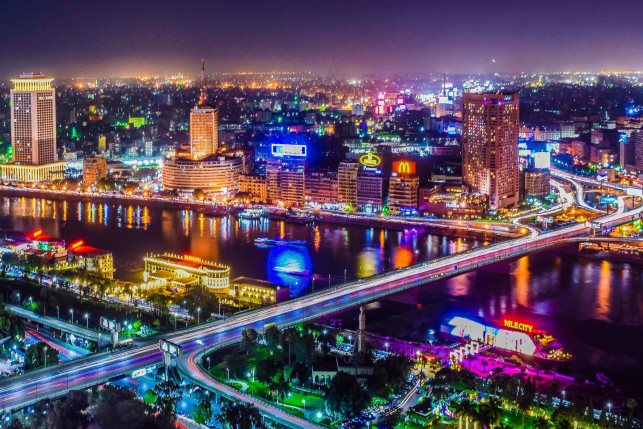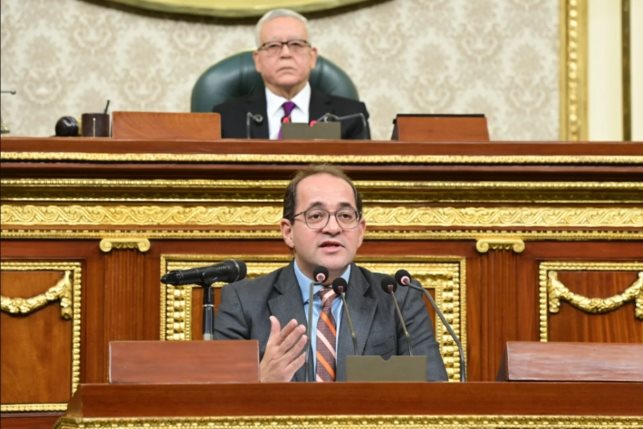Egypt's Maritime Renaissance: Yachting tourism surges amidst port infrastructure overhaul
Minister of Transport, Kamel El-Wazir, announced game-changing reforms to boost maritime activities.
 Minister of Transport, Kamel El-Wazir, announces game-changing reforms to boost maritime activities - File Photo
Minister of Transport, Kamel El-Wazir, announces game-changing reforms to boost maritime activities - File Photo
In a significant stride towards boosting tourism and maritime activities, Egypt's Minister of Transport, Kamel El-Wazir, announced a game-changing reform in the country's yachting sector during his speech at the "Hekayet Watan" conference, attended by President Abdel Fattah El-Sisi.
El-Wazir emphasized the importance of yachting tourism, which, until recently, faced a cumbersome bureaucratic process that deterred yacht owners from entering Egypt's waters. The minister stated that yacht owners had to obtain 14 permits from different authorities, each accompanied by its own fees, which added complexity and time to the process.

Egypt's Minister of Transport, Kamel El-Wazir, at the Hekayet Watan conference
However, the maritime landscape is now undergoing a transformation. El-Wazir revealed that Egypt has introduced a single platform for yacht owners to obtain the necessary approvals within just half an hour to visit all ports. This streamlined approach reduces inspection times to one hour upon arrival and departure, allowing yacht owners to explore Egypt's islands in coordination with the armed forces.
One of the key achievements highlighted by El-Wazir is the transformation of Egypt's ports into "green" facilities. Additionally, refueling ships has become more efficient, with vessels now refueling alongside Egyptian tugboats. Egypt's ports have achieved internationally recognized quality standards, further enhancing the maritime experience for yacht owners.
El-Wazir presented an overview of Egypt's maritime progress over the past decade, demonstrating the country's commitment to enhancing its maritime infrastructure. Until 2014, Egypt had 15 ports with a combined length of just 37 kilometers of docks and depths ranging from 8 to 12 meters, covering an area of 40 square kilometers. These ports had a maximum capacity of 160 million tons of cargo, 11 million containers, and 2 million transit containers in East Port Said, serving 15,000 medium-sized vessels annually.
In contrast, by the end of 2023, Egypt boasts 18 ports with 67 kilometers of docks, featuring depths between 15 and 18 meters and spanning 75 square kilometers. These ports can handle up to 270 million tons of cargo, 25 million containers, 4 million transit containers, and accommodate 2 million passengers annually. Egypt now receives approximately 20,000 large vessels each year.
Looking ahead to 2030, Egypt aims to expand its port infrastructure with 18 ports boasting 100 kilometers of docks, depths ranging from 18 to 22 meters, and covering 100 square kilometers. The maximum cargo capacity is projected to reach 400 million tons, with 40 million containers, including 10 million transit containers, and an estimated 30,000 large vessels annually. This expansion is expected to rival the income generated from Egypt's tourism sector.
El-Wazir emphasized that Egypt has transitioned from relying on foreign companies for construction equipment to using state-of-the-art technology for maritime dock construction. The design life of these docks has extended to 120 years, and Egypt now boasts 30 Egyptian companies and five Egyptian consulting firms specializing in port design and supervision.
Egypt has also made significant progress in expanding its storage yards, increasing from 40 million square meters in 2014 to 75 million square meters in 2023, with plans to reach 100 million square meters by 2030.
This transformative progress in Egypt's maritime infrastructure, along with the streamlined regulations for yacht tourism, holds great promise for the country's tourism sector and its economy as a whole.





